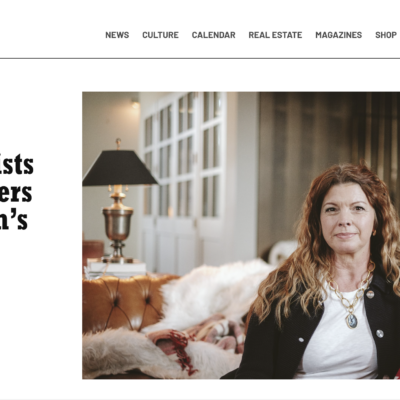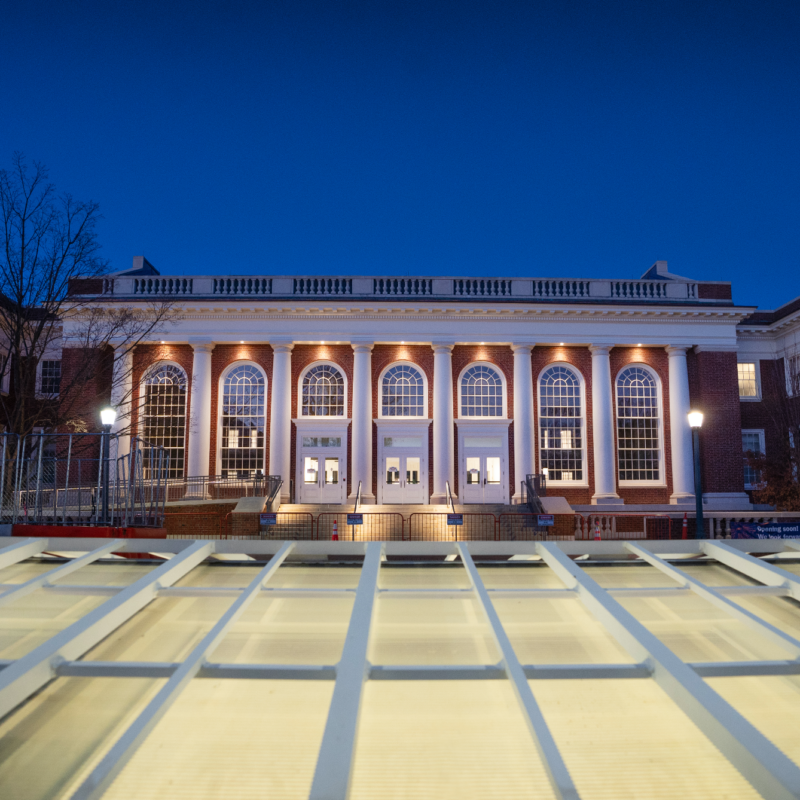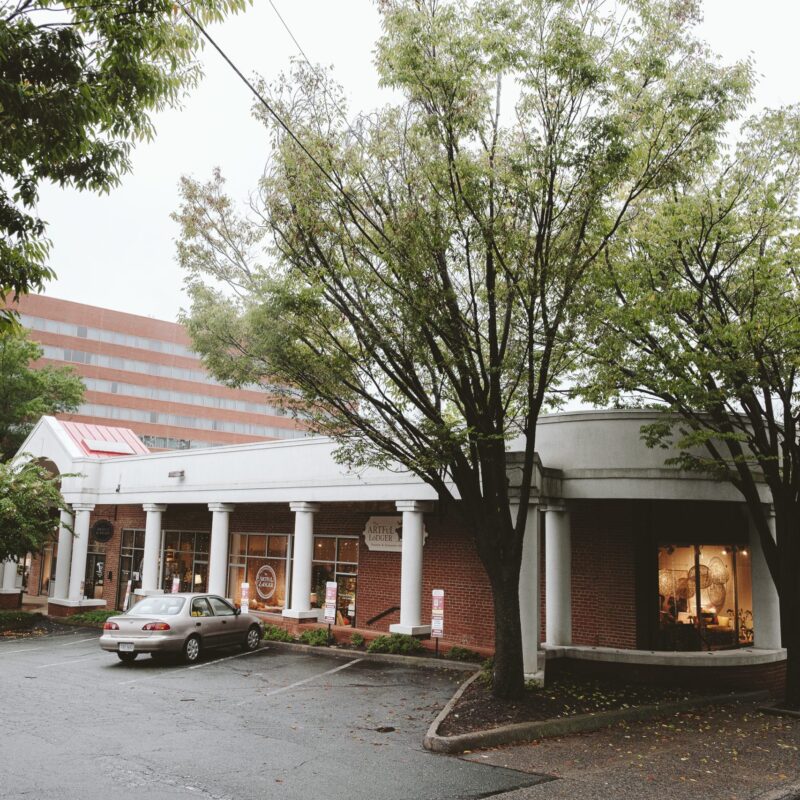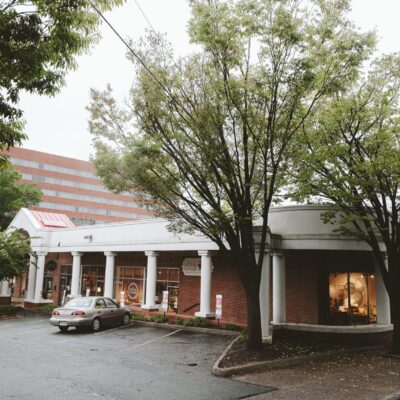Hip-hop’s most powerful tycoon also has the largest lyrical Rolodex in the game, an encyclopedic knowledge of the trends and brands of luxurious living. It’s an odd mix, the conference room cool and the street hustle: Most corporate suits with Sean Carter’s connects wouldn’t be caught dead with a microphone in hand—“Warren Buffett in the house,” anyone?—and whole worlds of public relations reps are devoted to keeping businessmen out of the spotlight. Of course, as Jay-Z told us years ago, “I’m not a businessman. I’m a business, man.” And, praise be to J-Hova, part of that business is still hip-hop.
So while the CEO known as “H-to-the-izz-O” wasn’t responsible for, say, the metal detectors that held up lines at the doors to John Paul Jones Arena, there’s a good chance Jay-Z had a say in most aspects of the evening’s entertainment, from the Reservoir Dogs clips screened during his entrance down to the opening act, a neon ninja named Santogold. Over scuzzy bass lines and a mountain of dance club fuzz, Santogold dished out chirpy lyrics while her two back-up dancers—picture The Supremes in gold lamé, then add Kraftwerk and Rosie Perez’s dance from Do the Right Thing—cooked up a simmering sweat without so much as a smile to cool down the growing crowd.
|
Jay-Z mixed business with pleasure during a night of soaring hip-hop at John Paul Jones Arena. |
T.I. may be rap’s biggest party in the smallest body. With neither the collected cool of Jay-Z nor the icy presence of Santo and her crew, the Atlanta emcee bounded onstage in a black Cavaliers hat and a necklace with more chips than a bag of Doritos; he doubled over to spit, seethe and yell like a miniature Ghostface Killah, introducing a nice edge to hooky hip-pop tunes.
Women crumbled to their seats only to rediscover their ability to bump and grind during “Whatever You Like,” and men whipped shirts around during the chrome-wheeled thumper “24s.” And for every obnoxious diatribe about “haters” or being “real,” there was a slickly produced cut from T.I.’s latest, Paper Trail—Just Blaze’s “Live Your Life” was a killer—to suggest that T.I. may be more of a pop artist than he lets on and might put that swagger to better use. Of course, when you’re T.I., the game owns you. When you’re Jay-Z, the game owes you, and you own the game.
The CEO of the R-O-C, Mr. Roc-a-fella himself, took the stage to footage from Reservoir Dogs and a fanfare from his band, dressed in business casual—a Yankees cap, black shades and a t-shirt inscribed with a cassette tape and the phrase “Own Your Masters.” Jay-Z segued powerfully through snippets from his latest full-length, American Gangster, and stitched a self-portrait from the pieces: “They say a lot about me, but let me tell you what I ain’t” (from “Say Hello”) led to the thank-you-speech boasts of “Roc Boys” and the regal references of “Pray.” (“A cut from the cloth of the Kennedys…This is the genesis of a nemesis.”)
Jay-Z carried all the confidence of a Vegas blackjack dealer. He never stepped on the toes of the fellows in the band, but didn’t hesitate to step in and reclaim the riches for the house. A healthy DJ AM (Adam Goldstein, who survived a September plane crash) eased slowly into the soul sample for “Lucifer,” his fingers riding the grooves of his vinyl records, making a surfer’s “hang loose” sign, then yielded the floor to the emcee’s dark-hearted revenge fantasy. Elsewhere, the band kicked in with an apocalyptic stomp to rival John Bonham’s drumming on “Kashmir” with “Can I Live” from 1996’s Reasonable Doubt, then scaled back for “Minority Report,” letting Jay-Z drop the evening’s most potent lines to a riveted, packed house.
After half-versions of “Jockin’ Jay-Z,” “Jigga My Nigga” and a version of “99 Problems” scorched over AC/DC’s “Back in Black,” Jay split the stage only to return seconds later. He grabbed DJ AM’s laptop and began scrolling through his library of songs, like ripping through his Rolodex, playing snippets of everything from “Crazy in Love” to “Money Ain’t a Thang,” occasionally joking “Y’all heard that” and, once, “Y’all don’t even know that one.” He settled for a respectable finale—”Big Pimpin’,” then “Encore”—and called for the lights to come on while his trumpet player carried on the last song’s melancholy minor riff.
“I see you,” he announced, and then moved briskly through the crowd, singling out a couple dozen audience members for their clothes, their dance moves, their support. It was a business trick, a CEO’s attention to the little guys, a gift from the Hustler to the customers. But so long as he’s part of the business, I’m buying.






